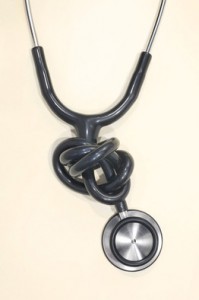Healthcare reform, ACA, Business Intelligence, Enterprise Portals, predictive analytics, pay for performance, the Triple Aim, total cost of care, patient safety….these, and many more, are the buzzwords in healthcare and medicine these days. Install this system, connect that system, run these reports, use this “intelligent program”… Do you ever wonder if we can solve all of these problems with just technology?
As a clinically oriented physician working in a technology world, I need to take a step back and look at behaviors and workflow. How can we mentor the next generation of physicians, nurses and allied health professionals, teach them skills and foster their curiosity while encouraging them to be technologically savvy? I believe there are two  critical keys to success: critical thinking and decision support. Both are crucial and neither should exist without the other. Here’s why.
critical keys to success: critical thinking and decision support. Both are crucial and neither should exist without the other. Here’s why.
Critical thinking is an essential tool for physicians. Physicians who have this innate ability are often the most successful at diagnosing and treating their patients well. It is part art and part skill but ultimately, it affects patient safety and wellness. I was pleased to see that medical school curriculums are now focusing on this as a fundamental skill. According to the recent Wall Street Journal article, “The Biggest Mistake Doctors Make,” the program at Dalhousie University “aims to help trainees step back and examine how biases may affect their thinking. Developed by Pat Croskerry, a physician known for his research on the role of cognitive error in diagnosis, it uses a list of 50 different types of bias that may lead to diagnostic error”. Couple this with technology driven decision support at the point of care, which assists but never negates clinical judgment, and you have a winning combination. These basic building blocks allow clinicians to concentrate on their craft: diagnosing and treating patients safely and effectively.
Healthcare reform is necessary but it does not have to undermine the knowledge and experience of our clinicians. Adding technology, such as Natural Language Processing (NLP), real time decision support, predictive analytics, patient entered data via portals, mobile healthcare management apps and yes, even Watson, can only enhance and advance healthcare, streamline treatment and decrease costs. Simple? Let me know your thoughts!
